New Featured Titles
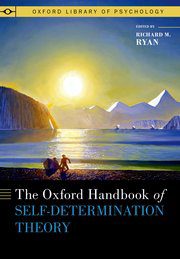
The Oxford Handbook of Self-Determination Theory
This latest handbook delivers a truly integrative volume with 57 chapters by the top scholars within the field of SDT & edited by co-founder, Richard M. Ryan. This is THE SDT resource and traces the theory's historical and scientific foundations and synthesizes the latest research and insights on human motivation, covering topics from the social and biological underpinnings of motivation and wellness to practical applications in all aspects of life.
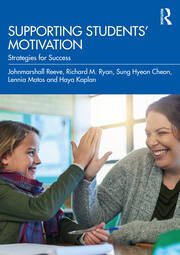
Supporting Students’ Motivation
This is a book about teachers’ classroom motivating styles. Motivating style is the interpersonal tone and face-to-face behavior the teacher relies on when trying to motivate students to engage in classroom activities and procedures. The over-arching goal of the book is to help teachers work through the professional developmental process to learn how to provide instruction in ways that students will find to be motivationally-enriching, satisfying, and engagement-generating.
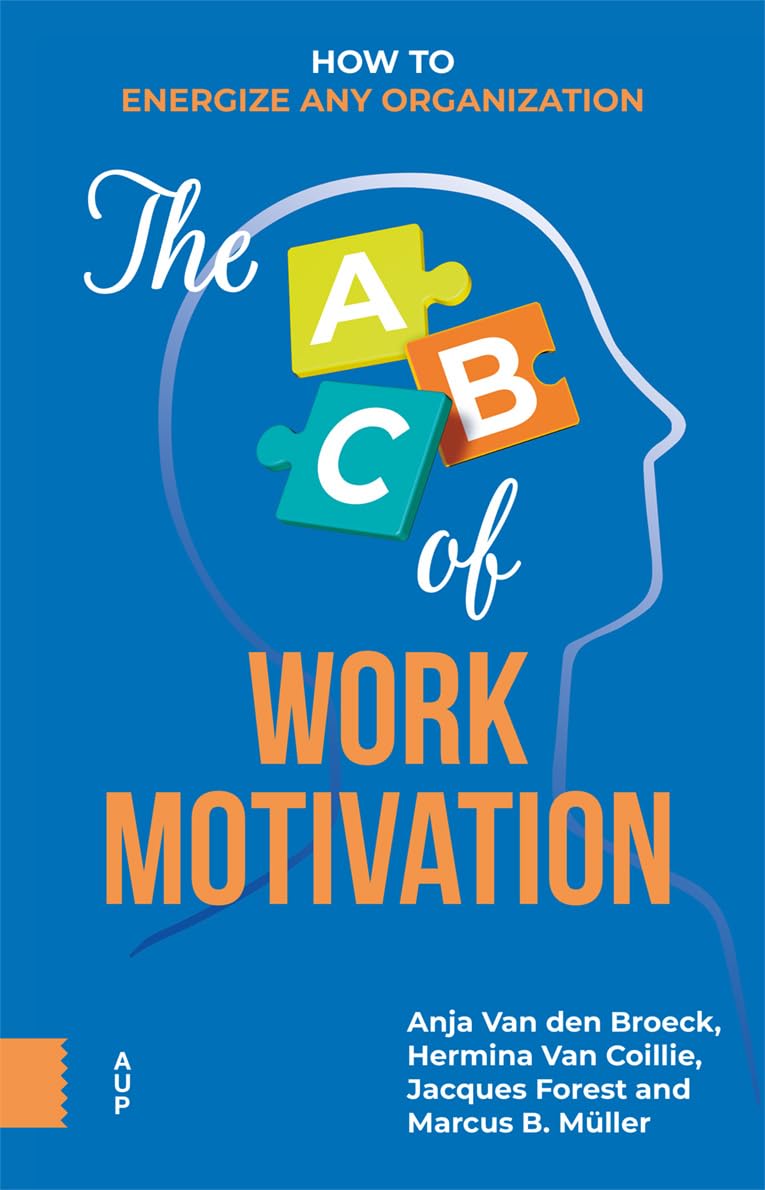
The ABC of Work Motivation
Motivation is the key to our lives. Whether at work, at home, at school or on the sports field, we constantly need to find ways to motivate ourselves and those we support. What if, instead of motivational tricks, we could rely on a positive, universal, and surprisingly simple point of view: that of Self-Determination Theory? Packed with examples and lists of questions to help us move from theory to practice, this book will change the way we are and the way we do things. Step by step, it explains the principles of SDT and the research that led to their discovery, and invites us to apply them for the greater well-being of ourselves and our colleagues or subordinates.
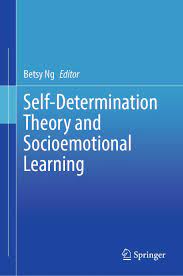
Self-Determination Theory & Socioemotional Learning
This book approaches the field of socioemotional learning from the perspective of self-determination theory (SDT). The volume examines socioemotional learning (SEL) in schools, higher educational institutions, and workplaces. It is a timely work in its comprehensive presentation of a means of understanding motivation for one’s own work, the motivation of others, stress tolerance, team-working, conflict resolution, as well as dealing with critical situations.
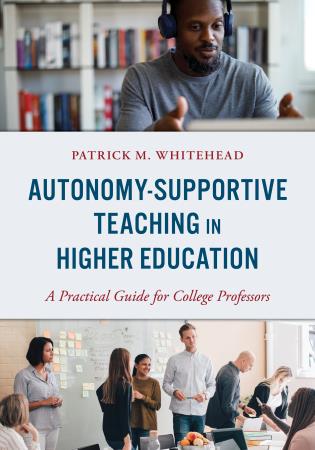
Autonomy-Supportive Teaching in Higher Education
This book is for college faculty who are tired of student apathy, disinterest, and confrontation, and who are interested in helping their students cultivate inner motivational resources. Autonomous learners are interested in more than getting a good grade or doing as they’re told—they benefit from the motivations that increase need satisfaction, lead to lifelong learning, and support a wide variety of independent learning objectives.
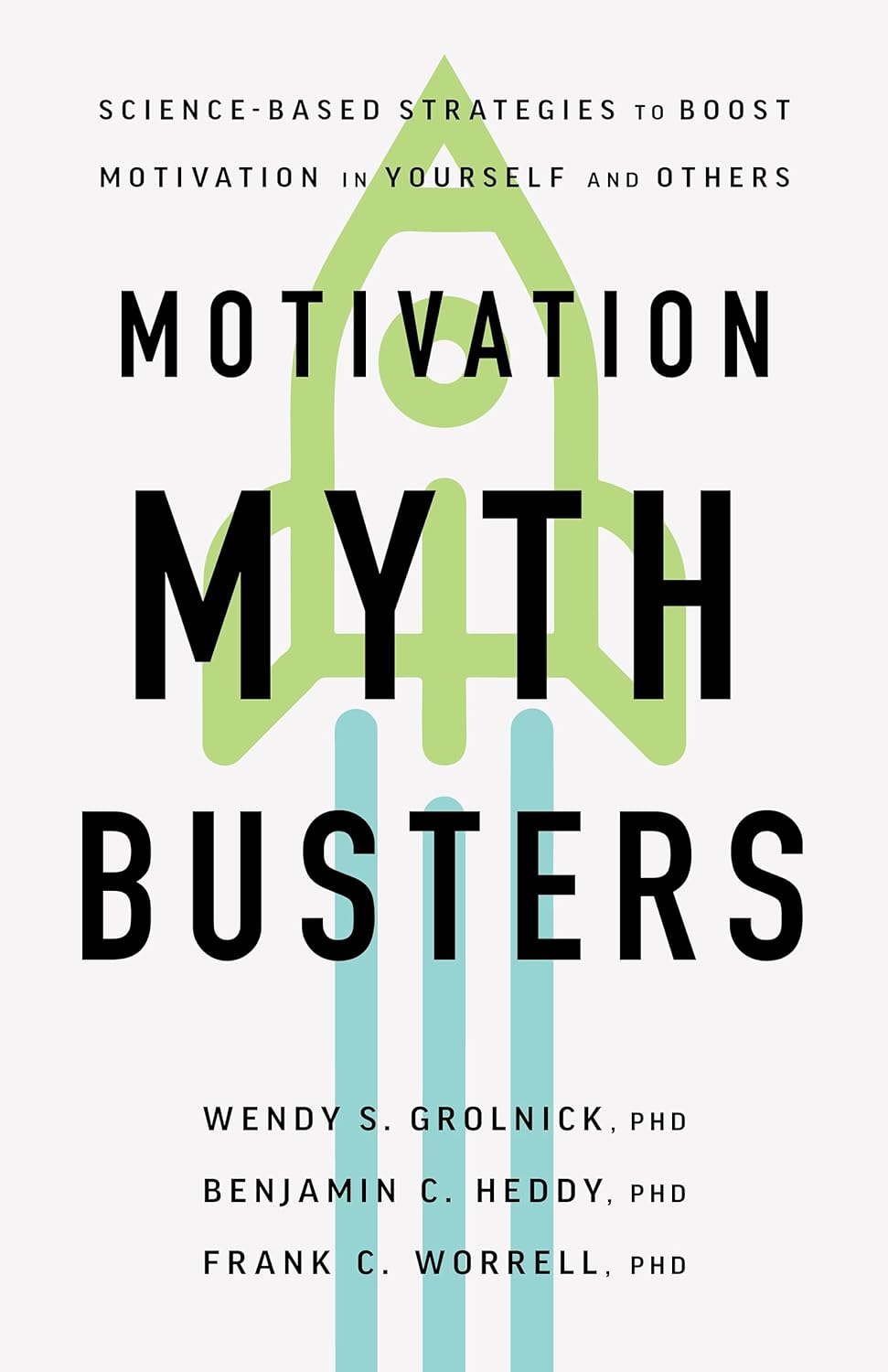
Motivation Myth Busters
This book provides a compelling way to rethink motivation as it is based around 10 common myths about motivation. The book explains why people might hold these beliefs and how they can get in the way of reaching our goals and helping others to reach theirs. It provides up-to-date science to replace these myths, along with practical strategies to boost motivation. The book is written in a fun way, with anecdotes and stories that bring the concepts alive. Though it covers many theories, it contains lots of SDT!
Noteworthy Books on SDT

The Oxford Handbook of Self-Determination Theory
This latest handbook delivers a truly integrative volume with 57 chapters by the top scholars within the field of SDT & edited by co-founder, Richard M. Ryan. This is THE SDT resource and traces the theory's historical and scientific foundations and synthesizes the latest research and insights on human motivation, covering topics from the social and biological underpinnings of motivation and wellness to practical applications in all aspects of life.
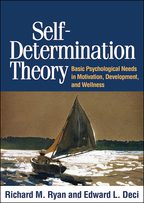
Self-Determination Theory
This is the Self-Determination Theory book of all books! Authored by the cofounders of the theory, Ryan and Deci comprehensively examine SDT's conceptual underpinnings (including its six mini-theories), it's empirical evidence base, and practical applications across the lifespan and to so many life domains. The volume synthesizes a vast body of research on how supporting—or thwarting—people's basic needs for competence, relatedness, and autonomy affects their development and well-being. This book provides a framework for understanding the factors that promote motivation and healthy psychological and behavioral functioning.

The Oxford Handbook of Human Motivation, 2nd Edition
The field of human motivation has been undergoing a revolutionary shift in the 21st century. What new philosophical assumptions, motivational models, and empirical evidence have emerged? What does this look like in theory and in application? This handbook addresses these key advances made in the field since the previous edition, offering the latest insights from the top theorists and researchers of human motivation.
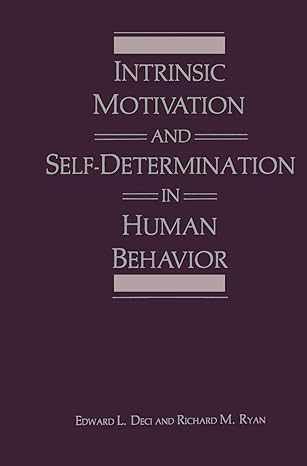
Intrinsic Motivation and Self-Determination in Human Behavior
This is first book by SDT co-developers, Edward Deci & Richard Ryan, to articulate self-determination theory, which at the time was offered as a working theory in the making. This book is primarily about self-determination and competence (with particular emphasis on the former), and about the processes and structures that relate to psychological needs. Findings and explorations are synthesized and integrated into what we now know SDT to be -- a broad, organismic theory of human motivation.

Handbook of Self-Determination Research
This handbook is a classic SDT book, that derived from the First International Conference on Self-Determination Theory. Papers included in this volume address the role which human motivation plays in a wide range of specialties including clinical psychology, internal medicine, sports psychology, social psychology, and educational psychology. Eighteen chapters, including an overview of self-determination theory, present the state of the research at that time in this scientifically rigorous, yet still relevant, approach to studying motivational problems in various life domains.
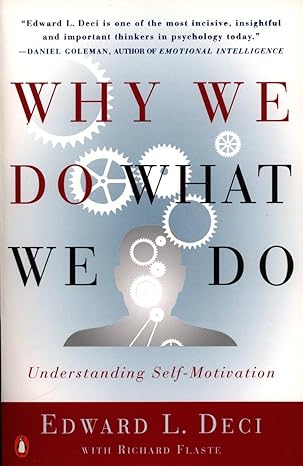
Why We Do What We Do
If you reward your children for doing their homework, they will usually respond by getting it done. But is this the most effective method of motivation? No, says psychologist Edward L. Deci, who challenges traditional thinking and shows that this method actually works against performance. The best way to motivate people—at school, at work, or at home—is to support their sense of autonomy. Explaining the reasons why a task is important and then allowing as much personal freedom as possible in carrying out the task will stimulate interest and commitment, and is a much more effective approach than the standard system of reward and punishment. We are all inherently interested in the world, argues Deci, so why not nurture that interest in each other?
Best-Seller Books Using SDT
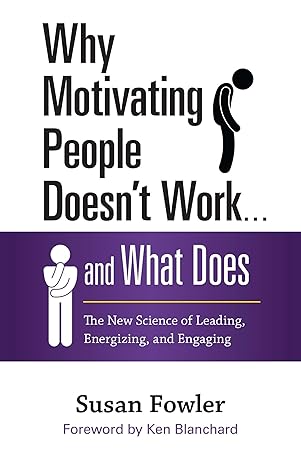
Why Motivating People Doesn’t Work . . . and What Does
Top leadership researcher, consultant, & coach Susan Fowler says stop trying to motivate people! It's frustrating for everyone involved and it just doesn't work. You can't motivate people—they are already motivated but generally in superficial and short-term ways. This book builds upon the latest scientific research on human motivation to lay out a tested model and course of action helping leaders guide their people toward the kind of motivation that increases productivity and engagement, and gives them a profound sense of purpose and fulfillment.

Drive: The Surprising Truth About What Motivates Us
This New York Times best seller by Daniel Pink gives readers/listeners a paradigm-shattering new way to think about motivation that derives from Self-Determination Theory. This book is a great introduction into Self-Determination Theory ideas and concepts regarding intrinsic and extrinsic motivation and basic psychological needs.
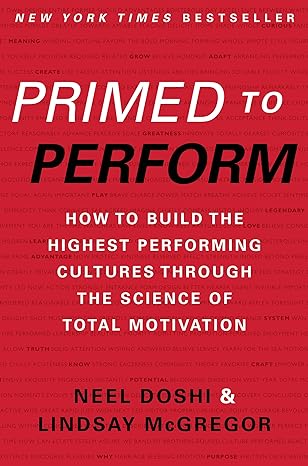
Primed to Perform
The revolutionary book that teaches you how to use the cutting edge of human psychology to build high performing workplace cultures. Too often, great cultures feel like magic. While most leaders believe culture is critical to success, few know how to build one, or sustain it over time. What if you knew the science behind the magic—a science so predictive and powerful that you could transform your organization? What if you could use cutting edge psychology to unlock people’s innate desire to innovate, experiment, and adapt? In Primed to Perform, Doshi and McGregor show you how to do just that.
Education

Supporting Students’ Motivation: Strategies for Success
This is a book about teachers’ classroom motivating styles. Motivating style is the interpersonal tone and face-to-face behavior the teacher relies on when trying to motivate students to engage in classroom activities and procedures. The over-arching goal of the book is to help teachers work through the professional developmental process to learn how to provide instruction in ways that students will find to be motivationally-enriching, satisfying, and engagement-generating.

Self-Determination Theory and Socioemotional Learning
This book approaches the field of socioemotional learning from the perspective of self-determination theory. The volume examines socioemotional learning (SEL) in schools, higher educational institutions, and workplaces. It is a timely work in its comprehensive presentation of a means of understanding motivation for one’s own work, the motivation of others, stress tolerance, team-working, conflict resolution, as well as dealing with critical situations.
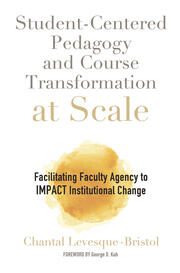
Student-Centered Pedagogy and Course Transformation at Scale
This book describes the development of Purdue University’s IMPACT program (Instruction Matters: Purdue Academic Course Transformation) for teaching based on SDT’s motivational framework guiding the initiative. This program’s goals were to build on the accumulated knowledge on effective teaching to facilitate student learning, improve outcomes, and change the institutional culture around teaching and learning objectives at Purdue.
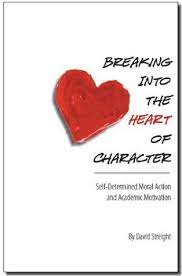
Breaking Into the Heart of Character: Self-Determined Moral Action and Academic Motivation
What helps kids feel like doing the right thing? Breaking into the Heart of Character outlines a compelling case with documented strategies that get past character talk and improve character action. Compiling evidence-based practices, this book focuses on educators' ability to catalyze internal motivation, and promote social growth and moral climates. The practices outlined in this book can be implemented by every teacher, in every class, every day.
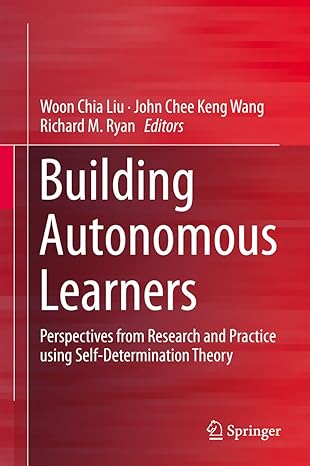
Building Autonomous Learners
This edited work presents a collection of 15 chapters on motivation research in education around the globe. Pursuing a uniquely international approach, it also features selected research studies conducted in Singapore under the auspices of the Motivation in Educational Research Lab, National Institute of Education, Singapore.
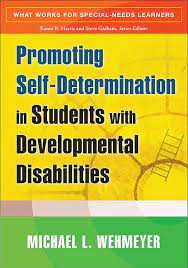
Promoting Self-Determination in Students with Developmental Disabilities
Growing evidence suggests that self-determination is a significant factor in improving educational and transition outcomes in students with intellectual and developmental disabilities. This volume reviews the breadth of available methods for teaching components of self-determination--including choice making, problem solving, decision making, goal setting, self-advocacy, and self-regulated learning--and provides best-practice recommendations that teachers can put to immediate use in the classroom.

Autonomy-Supportive Teaching in Higher Education: A Practical Guide for College Professors
This book is for college faculty who are tired of student apathy, disinterest, and confrontation, and who are interested in helping their students cultivate inner motivational resources. Autonomous learners are interested in more than getting a good grade or doing as they’re told—they benefit from the motivations that increase need satisfaction, lead to lifelong learning, and support a wide variety of independent learning objectives.
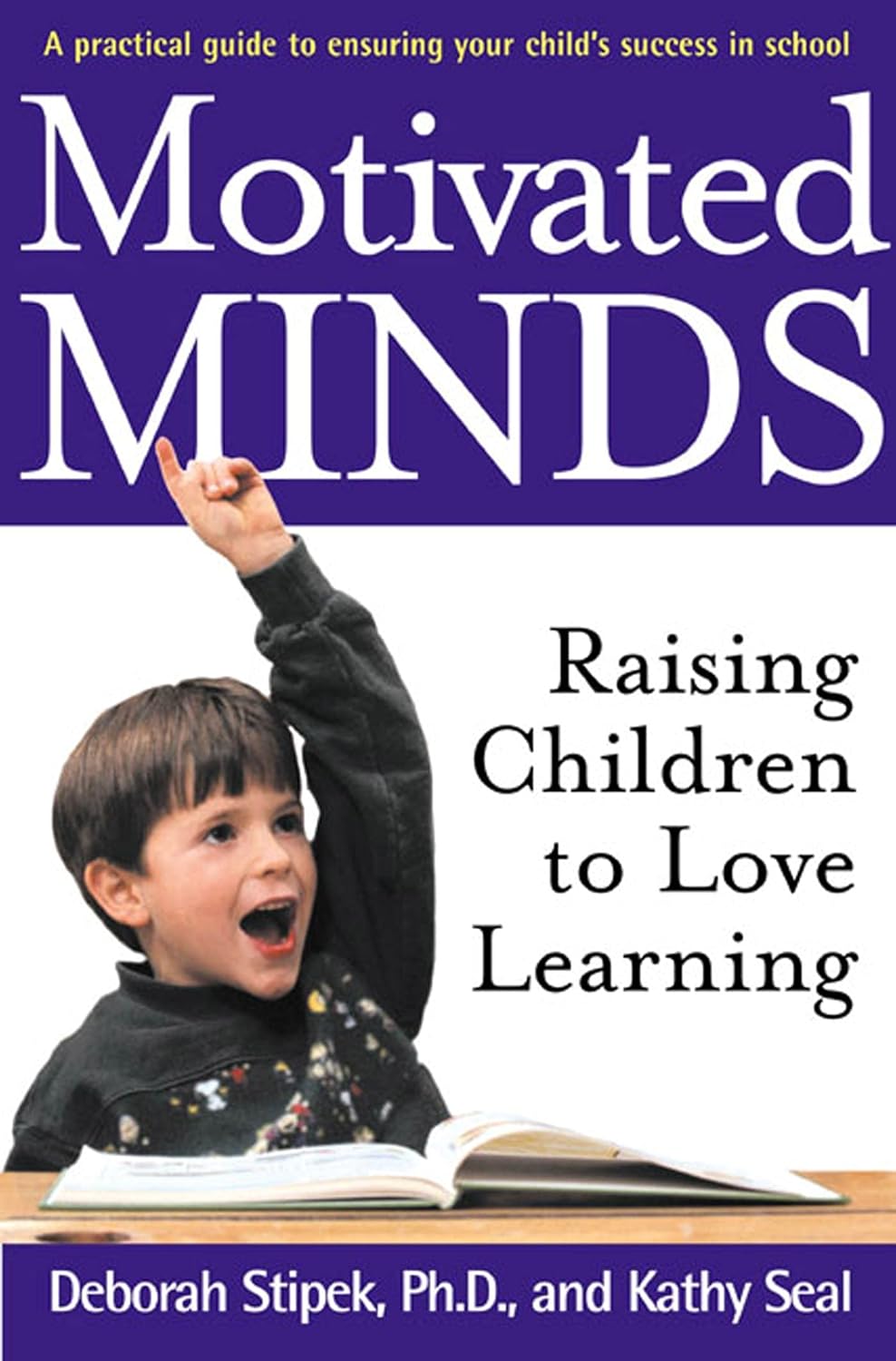
Motivated Minds: Raising Children to Love Learning
What makes children succeed in school? For the past twenty years, the focus has been on building children's self-esteem to help them achieve more in the classoom. But positive reinforcement hasn't necessarily resulted in measureable academic improvement. Through extensive research, combined with ongoing classroom implementation of their ideas, Deborah Stipek, Dean of the School of Education at Stanford, and Kathy Seal have created a program that will encourage motivation and a love of learning in children from toddlerhood through elementary school.
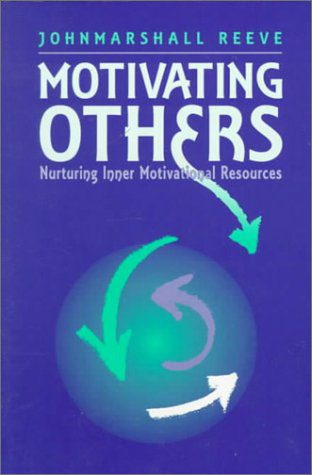
Motivating Others: Nurturing Inner Motivational Resources
“Motivating Others” focuses on helping teachers to encourage and nurture their students' natural motivation. With its constructivist, humanistic approach, this book presents theoretical rationale as well as practical 'how-to' applications within a clear, conceptual, organizational framework for the study of motivation.
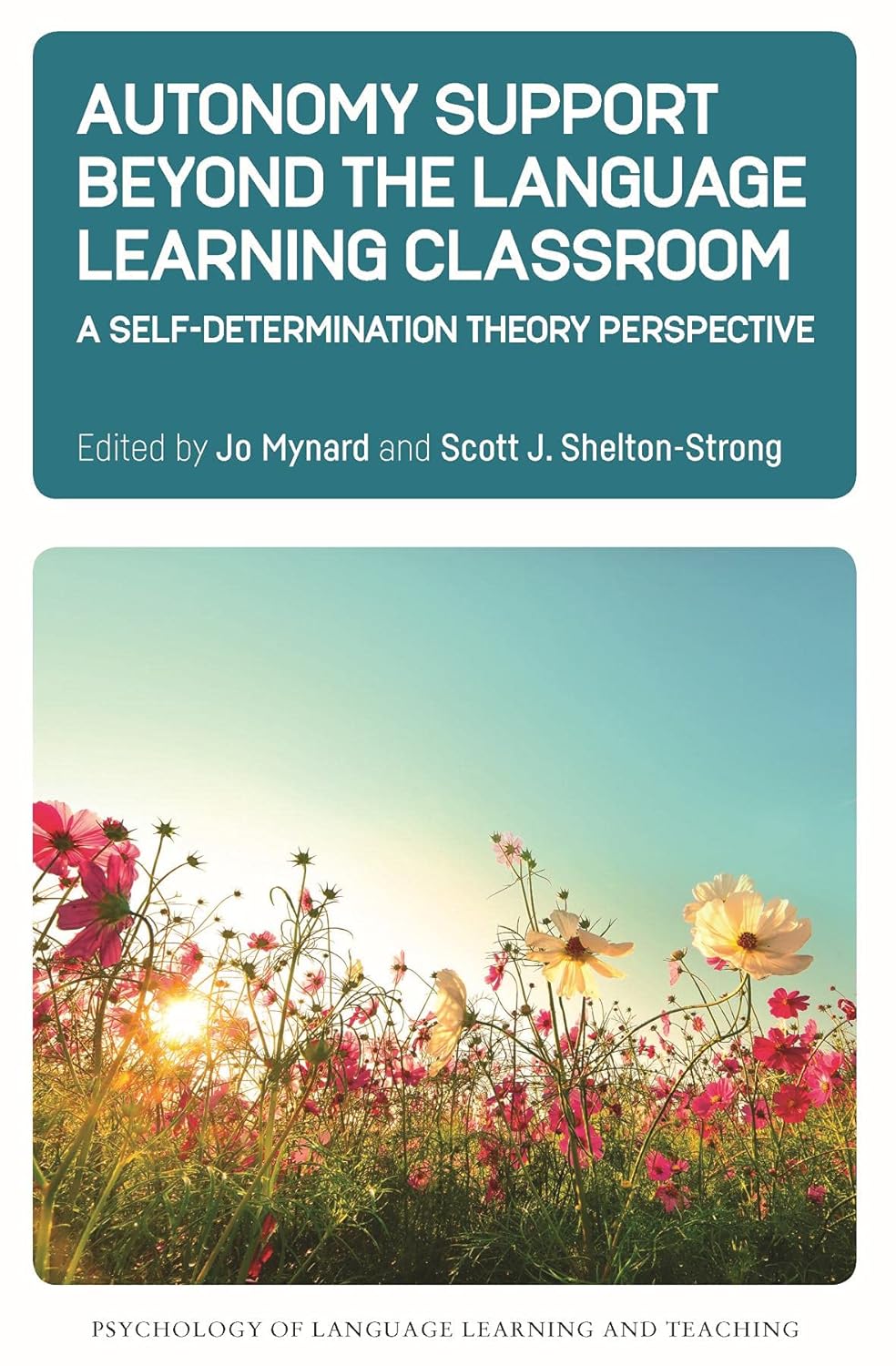
Autonomy Support Beyond the Language Learning Classroom: A Self-Determination Theory Perspective
Through the application of SDT, this book deepens our understanding of how autonomous language learning can be supported and understood within environments outside of the classroom. Theoretical, empirical and practice-focused chapters examine autonomy support in a range of contexts and settings, dealing with learning environments and open spaces, communities and relationships, and advising and self-access language learning. They reveal what occurs beyond the classroom, how socializing agents support autonomous motivation and wellness, and how SDT can enhance our understanding of supporting language learner autonomy.
Parenting & Development
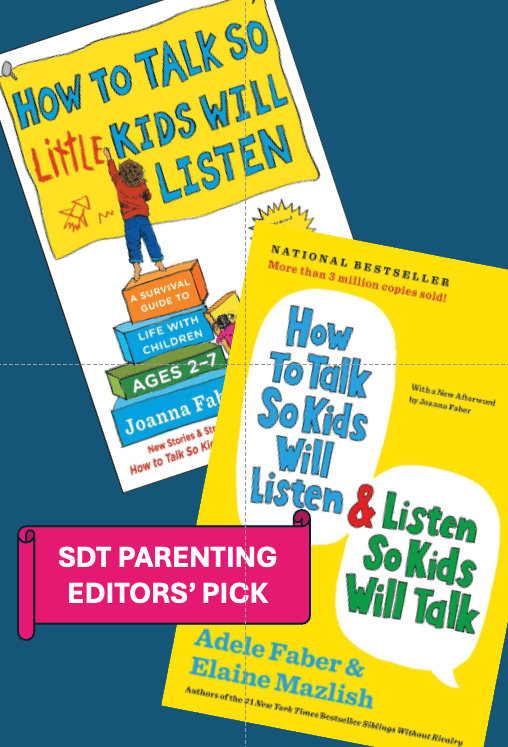
The How-To Program (forward below by SDT Parenting Editors: Mireille Joussemet & Genevieve Mageau)
“The How-to Program" was developed by Faber and Mazlish (1974, 1980, 2000, 2010) and is based on Ginott’s work (1959, 1961, 1965). In empirical research, autonomy support has been operationalized as: (1) acknowledging the child’s feelings and perspective, (2) offering meaningful rationales for rules and requests, and (3) providing choice and opportunities for initiative taking (Grolnick & Ryan, 1989; Koestner et al. 1984; Mageau & Joussemet, 2023). This definition, used in a host of studies demonstrating the benefits of parental autonomy support on children (Joussemet et al. 2008), was also based on Ginott’s writings. Given that Ginott’s work informed both the operational SDT definition of autonomy support and the specific parenting skills included in the "How-to Parenting Program", it is not surprising that this program perfectly captures what it means to provide autonomy support [and effectively promotes this parenting component (Mageau et al., 2022; Joussemet et al., 2014, p. 950). As editors of the parenting topic page, we strongly recommend trying these 30 autonomy-supportive parenting skills! Version for Children: https://amzn.to/4aiaHGd Version for Toddlers: https://amzn.to/3VFi1qL
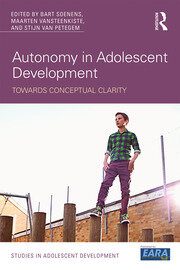
Autonomy in Adolescent Development
Autonomy is a central feature of adolescent development, playing a key role in adolescents’ psychosocial adjustment. However, opinions differ about the nature and definition of autonomy and so important questions regarding the role of autonomy in adolescents’ development have remained unanswered. This book helps to address these questions while bringing clarity to the literature on adolescent autonomy.
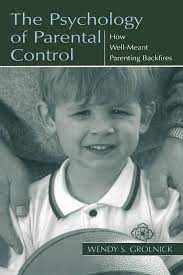
The Psychology of Parental Control
What is parental control? Is it positive or negative for children? What makes parents controlling with their children, even when they value supporting children's autonomy? Are there alternatives to control and how might we apply them in important domains of children's lives, such as school and sports? This book addresses these and other questions about the meaning and predictors of parental control, as well as its consequences for children's adjustment and well-being.
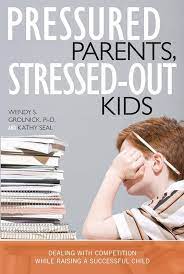
Pressured Parents, Stressed-out Kids
This book helps parents deal with the torrential emotions stirred up by our competitive society, and to give them scientific knowledge about their children's growing years, leading child researcher Wendy Grolnick and educational and parenting journalist Kathy Seal offer this illuminating and accessible guide to channeling competitive anxiety into positive parenting.
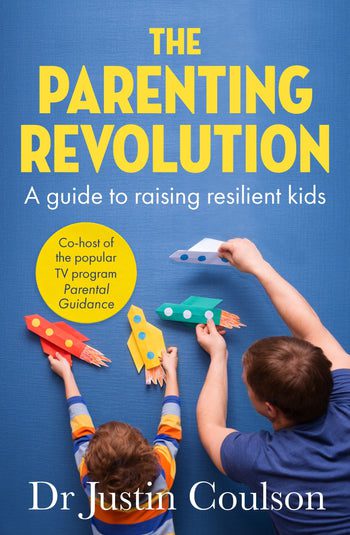
The Parenting Revolution
What does it mean to be a good parent? Are you a good parent when your child is compliant, but a bad parent when they’re not? And what if your child has additional needs? This book is about parenting styles and draws on SDT research and parenting science as well as studies of childhood development to show: how our children thrive when we understand and meet their basic psychological needs; how our job is not to fix our kids, but to create an environment that supports their growth and development; and how children flourish when we minimize control.
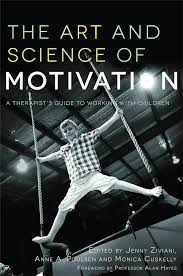
The Art and Science of Motivation: A Therapist’s Guide to Working with Children
Drawing on Self-Determination Theory, the authors describe this innovative paradigm - the model of Synthesis of Child, Occupational Performance and Environment - in Time (SCOPE-IT) - and explain how it can be used to sustain the child's motivation and active involvement in the therapeutic process. They suggest ways of using language and of structuring and working with the environment to maximise engagement and autonomy and achieve the best possible treatment outcomes. The challenges professionals may face when working with children are also addressed.
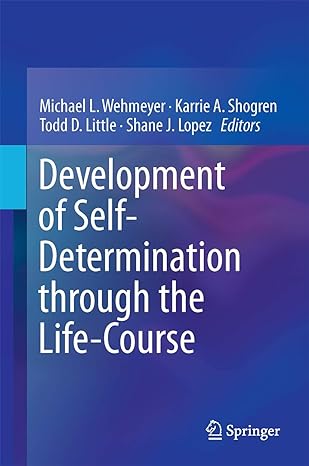
Development of Self-Determination Through the Life-Course
This volume examines the developmental aspects of the general psychological construct of self-determination. The term refers to self- (vs. other-) caused action―to people acting volitionally―as based on their own will. Research conducted in the fields of psychology and education shows the importance of self-determination to adolescent development and positive adult outcomes.
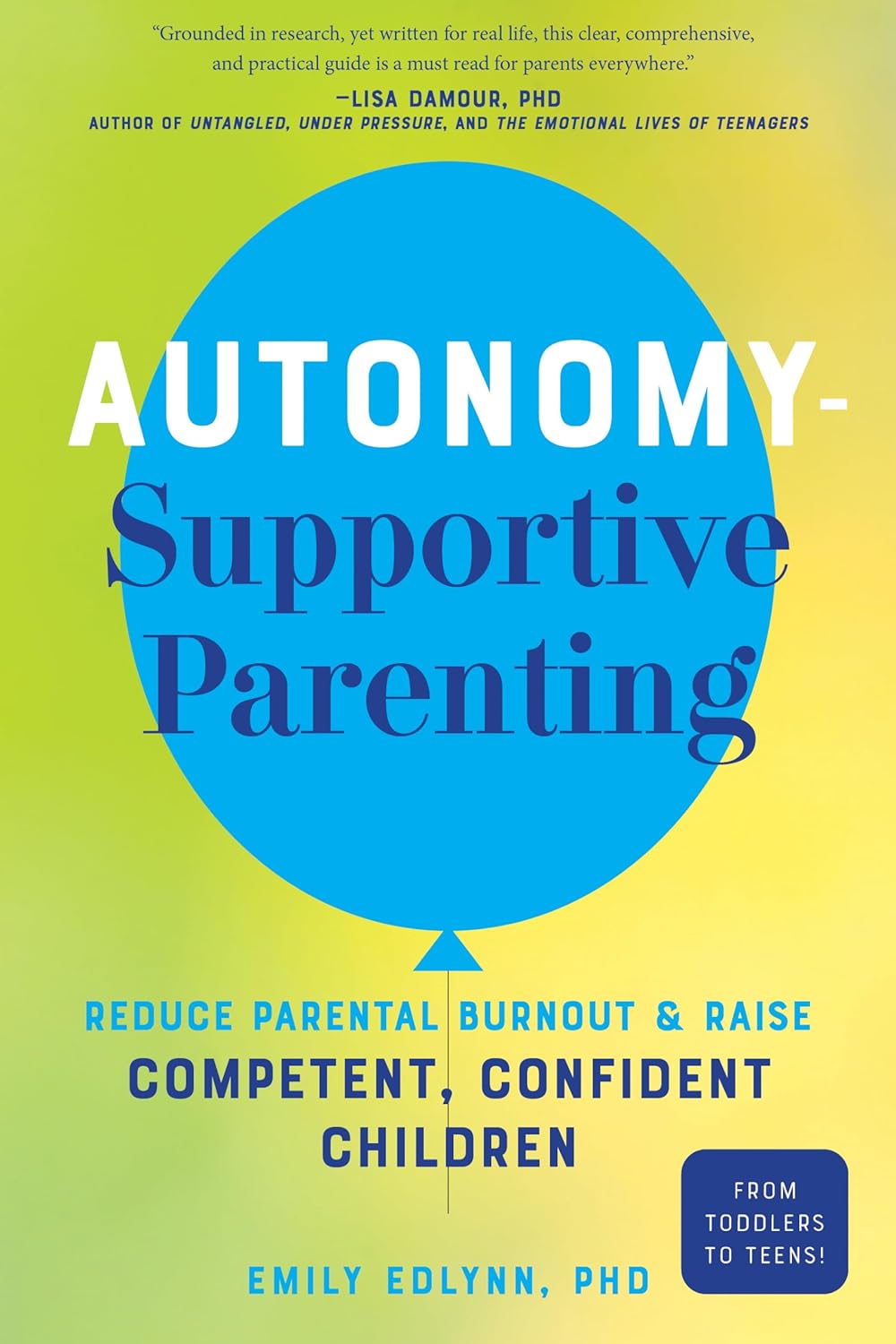
Autonomy-Supportive Parenting
So how do we support our children’s autonomy while maintaining boundaries and not losing our minds in the process? From clinical psychologist Emily Edlynn, PhD, comes a flexible parenting framework based on Self-Determination Theory that you can apply to every family and every parental relationship. With Autonomy-Supportive Parenting, you can build trust in your child and trust in yourself.
Health & Wellness
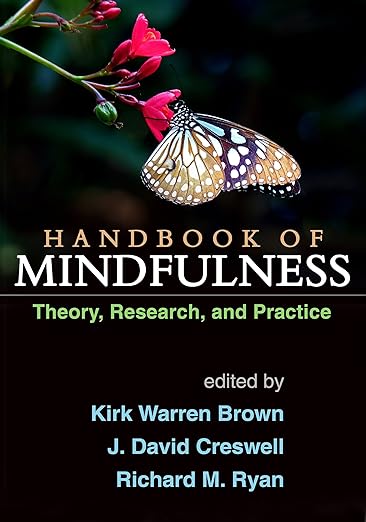
Handbook of Mindfulness
An authoritative handbook, this volume offers both a comprehensive review of the current science of mindfulness and a guide to its ongoing evolution. Leading scholars explore mindfulness in the context of contemporary psychological theories of attention, perceptual processing, motivation, and behavior, as well as within a rich cross-disciplinary dialogue with the contemplative traditions.
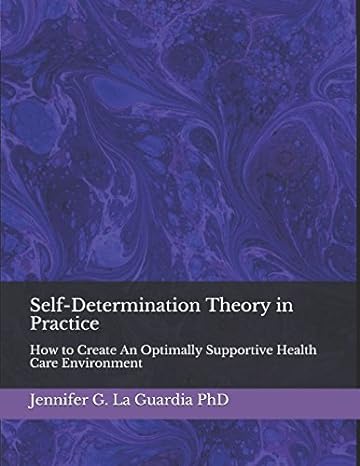
Self-Determination Theory in Practice: How to Create An Optimally Supportive Health Care Environment
What gets you started making a health behavior change? And what keeps you going with those changes over the long haul? Many books and tutorials offer solutions to these questions, but these solutions often don’t work or don’t last long. This book is the most comprehensive manual to date detailing how to cultivate high-quality and lasting motivation for healthy living using the tools and strategies from Self-Determination Theory – one of the world's most acclaimed and groundbreaking theories of motivation.
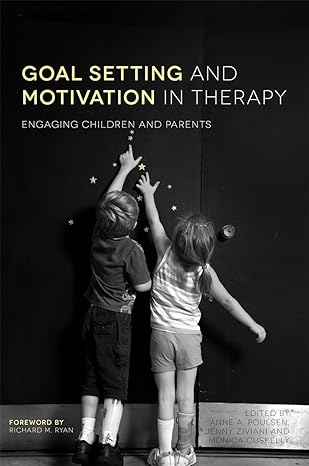
Goal Setting and Motivation in Therapy
This book presents innovative models for goal-setting and goal pursuit in therapy with children. Setting goals not only allows children, and their families, to engage with the overall therapeutic process, but it also provides an essential motivational element throughout the entire therapeutic process. Key information on Self-Determination Theory (SDT) is accessibly explained, which will aid professional understanding of the relationship between motivation, goal-setting, and strong therapeutic practice.
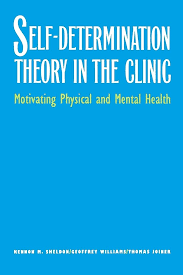
Self-Determination Theory in the Clinic
Self-determination theory is grounded in the belief that people work best and are happiest when they feel that they are in control of their own lives. This invaluable book explains the ramifications of the theory and provides clinical examples to show that it can be used to motivate patients undergoing treatment for such physical or psychological issues as diabetes management, smoking cessation, post-traumatic stress, obsessive-compulsive disorder, and depression

Intrinsic Motivation and Self-Determination in Exercise and Sport
Motivation is central to many social psychological theories that aim to explain behavior, including self-determination theory (SDT), one of the most influential theories of human motivation developed in the last three decades. This book examines the contribution of this theory to the understanding of motivation and behavior in the domains of exercise and sport.
Workplace & Organizations

The ABC of Work Motivation: How to Energize Any Organization
Motivation is the key to our lives. Whether at work, at home, at school or on the sports field, we constantly need to find ways to motivate ourselves and those we support. What if, instead of motivational tricks, we could rely on a positive, universal, and surprisingly simple point of view: that of Self-Determination Theory? Packed with examples and lists of questions to help us move from theory to practice, this book will change the way we are and the way we do things. Step by step, it explains the principles of SDT and the research that led to their discovery, and invites us to apply them for the greater well-being of ourselves and our colleagues or subordinates.
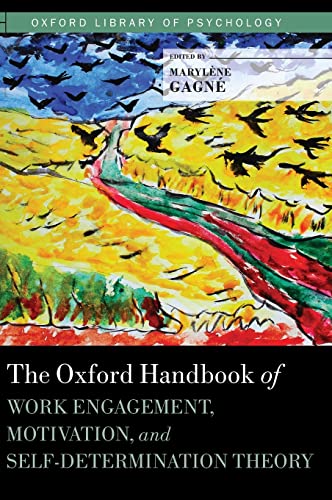
The Oxford Handbook of Work Engagement, Motivation, and Self-Determination Theory
Self-determination theory is a theory of human motivation that increasingly is being used by organizations to make strategic HR decisions and train managers. It argues for a focus on the quality of workers' motivation over quantity. Motivation that is based on meaning and interest is shown to be superior to motivation that is based on pressure and rewards. Work environments that make workers feel competent, autonomous, and related to others foster the right type of motivation, goals, and work values.

Primed to Perform: How to Build the Highest Performing Cultures Through the Science of Total Motivation
The revolutionary book that teaches you how to use the cutting edge of human psychology to build high performing workplace cultures. Too often, great cultures feel like magic. While most leaders believe culture is critical to success, few know how to build one, or sustain it over time. What if you knew the science behind the magic—a science so predictive and powerful that you could transform your organization? What if you could use cutting edge psychology to unlock people’s innate desire to innovate, experiment, and adapt? In Primed to Perform, Doshi and McGregor show you how to do just that.
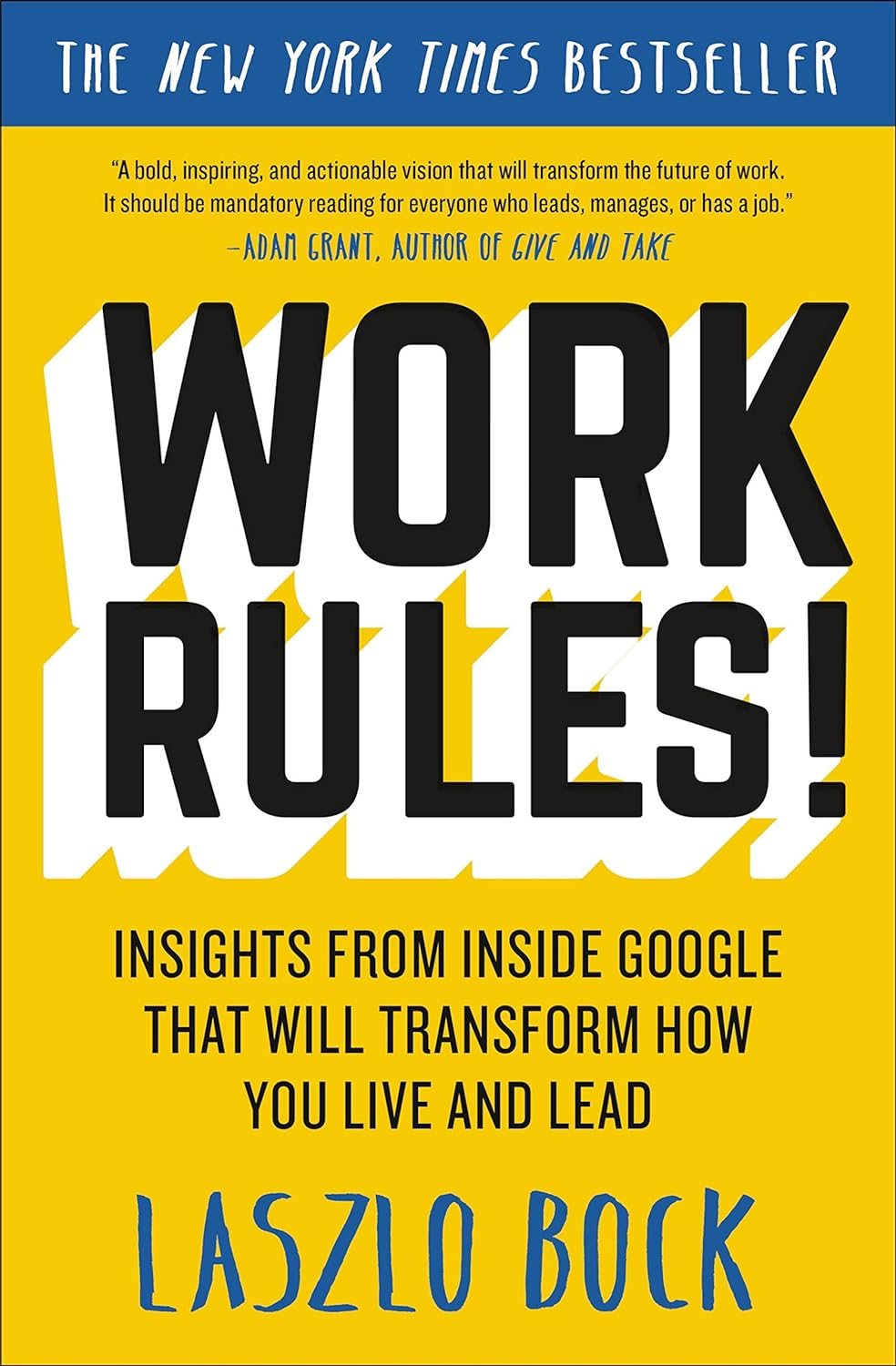
Work Rules!
From the visionary head of Google's innovative People Operations comes a groundbreaking inquiry into the philosophy of work -- and a blueprint for attracting the most spectacular talent to your business and ensuring that they succeed. “We spend more time working than doing anything else in life. It's not right that the experience of work should be so demotivating and dehumanizing." So says Bock, who draws on the latest research in behavioral economics and psychology to provide teaching examples from a range of industries.
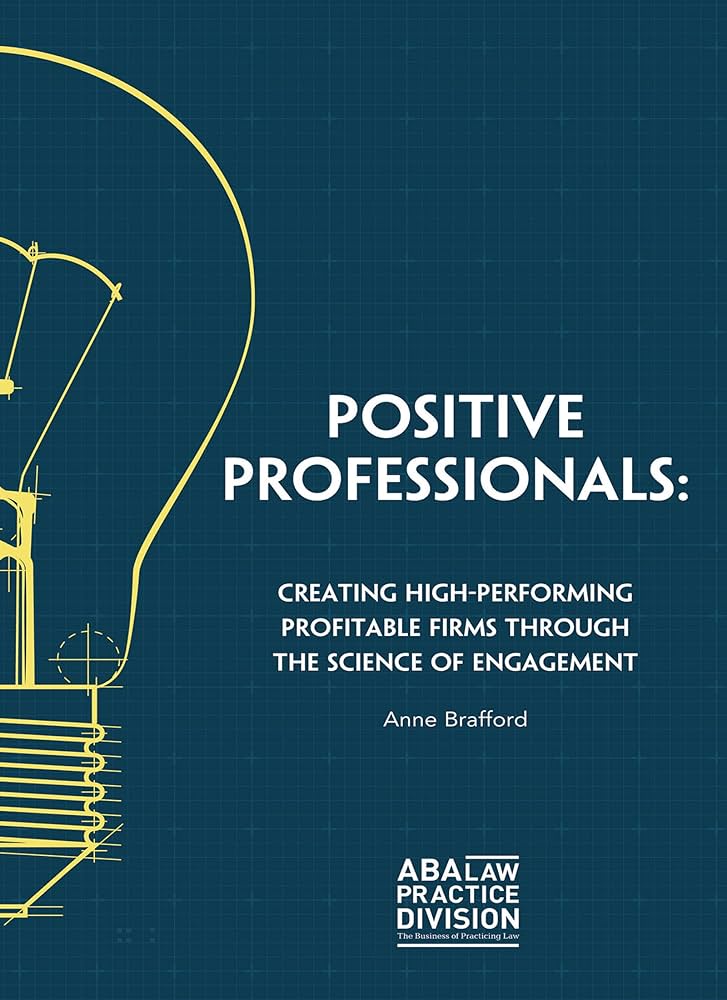
Positive Professionals
Many firms take it on faith that there's only one way to attract and retain top talent and motivate peak performance: Ever-rising salaries. But has it worked? Firms’ hyper-competitive cultures, complaints of growing incivility and demoralization, a diversity crisis at the top, and a revolving door of talent suggest that it's time to try something new. Positive Professionals is a practical handbook of science-backed strategies to foster full engagement by enhancing people's experience of meaningful work, of feeling valued and valuable, and of growing and developing.
Technology & Virtual Worlds

Glued to Games
With video game sales in the billions and strong opinions about their potential and their peril growing louder, "Glued to Games" brings something new to the discussion. It is the first truly balanced review of the psychology of video game motivation and engagement, based on years of research with thousands of gamers. The book addresses both the positive and negative aspects of game play by drawing on significant recent studies and established motivational theory to explore the fundamental drivers of engagement, how games satisfy basic psychological needs, and how an understanding of these factors can be applied to controversial topics such as video game violence and game addiction.
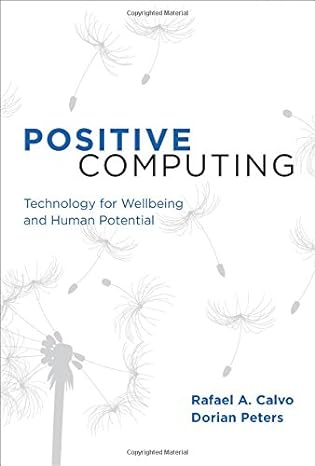
Positive Computing
On the eve of Google's IPO in 2004, Larry Page and Sergey Brin vowed not to be evil. Today, a growing number of technologists would go further, trying to ensure that their work actively improves people's lives. Technology, so pervasive and ubiquitous, has the capacity to increase stress and suffering; but it also has the less-heralded potential to improve the well-being of individuals, society, and the planet. In this book, Rafael Calvo and Dorian Peters investigate what they term "positive computing" -- the design and development of technology to support psychological well-being and human potential.
Autonomy and Philosophy
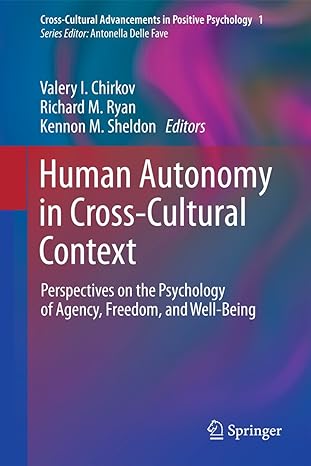
Human Autonomy in Cross-Cultural Context
This volume presents a stimulating tapestry of essays exploring the nature of personal autonomy, self-determination, and agency, and their role in human optimal functioning at multiple levels of analysis from personal to societal and cross-cultural. The starting point for these explorations is self-determination theory (SDT). As the contributions will make clear, psychological autonomy is a concept that forms the bridge between the dependence of human behavior on biological and socio-cultural determinants on the one side, and people’s ability to be free, reflective, and transforming agents who can challenge these dependencies, on the other.

The High Price of Materialism Paperback
Drawing on SDT and other empirical data, Kasser examines what happens when we organize our lives around materialistic pursuits. He looks at the effects on our internal experience and interpersonal relationships, as well as on our communities and the world at large. He shows that materialistic values actually undermine our well-being, as they perpetuate feelings of insecurity, weaken the ties that bind us, and make us feel less free.

Living Well Now and in the Future: Why Sustainability Matters
Most people acknowledge the profound importance of sustainability, but few can define it. We are ethically bound to live sustainably for the sake of future generations, but what does that mean? In this book Randall Curren, a philosopher, and Ellen Metzger, a scientist, clarify normative aspects of sustainability. Combining their perspectives, they propose that sustainability can be understood as the art of living.
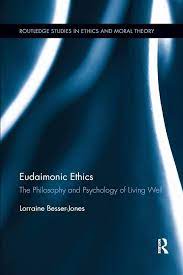
Eudaimonic Ethics: The Philosophy and Psychology of Living Well
This book develops an eudaimonistic virtue ethics based on a psychological account of human nature. This project maintains the fundamental features of the eudaimonistic virtue ethical framework—virtue, character, and well-being. The book further draws support from the psychological fields of Self-Determination Theory and self-regulation theory. The resulting account of "eudaimonic ethics" presents a compelling normative theory and offers insight into what is involved in being a virtuous person and "acting well."
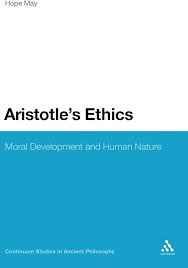
Aristotle’s Ethics: Moral Development and Human Nature
This book addresses two main theses: First, ethical virtue (which includes both the virtues of thought and character) is a developmental prerequisite for contemplative excellence (and, hence, for eudaimonia). Second, although we may no longer accept Aristotle's view that a life of contemplation is the only truly good life, his ethical outlook, including his views about human motivation and the role of virtues in enabling one to achieve a good life are still relevant and defensible. His theory can easily be modernized and can contribute to our current ethical or psychological debates. Self-determination and self-concordance are examined.
Books in Other Languages
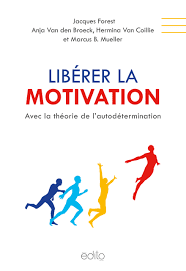
Libérer la Motivation
FRENCH - La motivation est la clé de nos vies. Au travail comme à la maison, à l’école ou sur un terrain de sport, il faut sans cesse trouver des façons d’être motivé pour agir et motivant pour celles et ceux qu’on accompagne. Et si, au lieu de ruser, il suffisait d’adopter un point de vue positif, universel et étonnamment simple : celui de la théorie de l’autodétermination.

Vitamines voor groei: ontwikkeling voeden vanuit de Zelf-Determinatie Theorie
DUTCH - In dit boek betogen de auteurs, op basis van de Zelf-Determinatie Theorie, dat de psychologische behoeftes aan autonomie, competentie en verbondenheid de cruciale vitamines zijn voor groei. Door in deze vitamines te voorzien voeden ouders, leerkrachten en hulpverleners de ontwikkeling van kinderen en jongeren. Wanneer echter deze behoeftes ondermijnd worden, vertraagt hun groei en wordt psychopathologie in de hand gewerkt. De auteur licht toe hoe kinderen die deze vitamines krijgen nieuwsgierig en geboeid door het leven gaan. Bovendien luisteren ze eerder uit vrije wil dan omdat het moet.
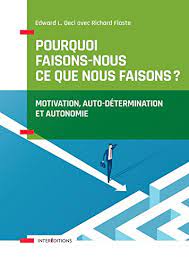
Pourquoi faisons-nous ce que nous faisons?: Motivation, auto-détermination et autonomie
FRENCH - La vraie et saine motivation est interne : il faut aboutir à l'auto-détermination pour que la personne s'investisse vraiment et efficacement. La carotte et le bâton ne sont pas des motivations durables et efficaces. Obtenir le plein engagement de la personne requiert de créer un environnement qui favorise et stimule l'autonomie et la compétence.
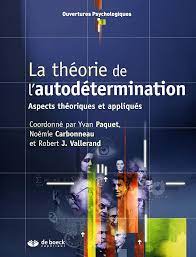
La théorie de l’autodétermination: Aspects théoriques et appliqués
FRENCH - La théorie de l'autodétermination est une théorie de la motivation humaine. Elle s'intéresse à la manière de soutenir nos tendances naturelles ou intrinsèques à se comporter de façon saine et efficace. La théorie de l’autodétermination est une théorie de la motivation humaine. Elle se penche sur la manière de soutenir nos tendances naturelles ou intrinsèques à nous comporter de façon saine et efficace. Elle représente un cadre général pour l’étude de la motivation humaine et de la personnalité ; elle s’intéresse aux sources variées de motivations intrinsèques ou extrinsèques, aux rôles respectifs des types de motivations intrinsèques ou extrinsèques sur le développement cognitif et social, à la façon dont les facteurs sociaux et culturels facilitent ou sapent la motivation naturelle de l’homme et aux conditions permettant de soutenir l’autonomie, la compétence et l’affiliation pour favoriser des formes de qualité élevée de motivation.

Pourquoi motiver est-il si compliqué…: Et comment y arriver !
FRENCH - La science de la motivation : une démarche inédite pour diriger, stimuler et impliquer vos salariés. Aidez vos salariés à découvrir que le travail permet de satisfaire leurs besoins psychologiques fondamentaux. Fowler détaille comment amener les salariés à aborder leur activité dans une perspective nouvelle, en la considérant comme une potentielle source d'épanouissement. Les objectifs de l’entreprise deviennent leurs propres objectifs dès lors qu’ils se sentent vraiment concernés.
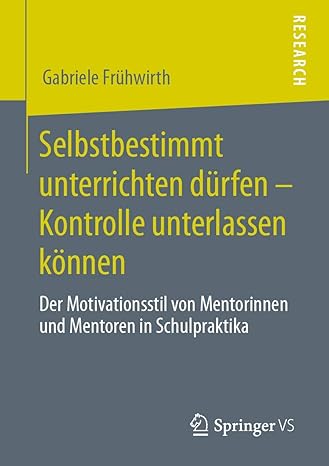
Selbstbestimmt unterrichten dürfen – Kontrolle unterlassen können: Der Motivationsstil von Mentorinnen und Mentoren in Schulpraktika
GERMAN - Schulpraktika nehmen sowohl bei Studierenden als auch an Ausbildungsinstitutionen einen zentralen Stellenwert ein. Gabriele Frühwirth geht der Frage nach, inwieweit Mentorinnen und Mentoren als Ausbildende an den Schulstandorten selbstbestimmtes Planen und Unterrichten der Studierenden zulassen und wodurch in den Praxisphasen das Autonomiebedürfnis dieser erfüllt wird. Es zeigt sich, dass Mentorinnen und Mentoren eine vorwiegend inkonsistente Motivationsstrategie einsetzen, die sich in den von den Studierenden genannten Quellen der Bedürfnisbefriedigung unterschiedlich manifestiert.
CSDT is a participant in the Amazon Services LLC Associates Program, an affiliate advertising program designed to provide a means for the Center to earn small fees by linking to Amazon.com and affiliated sites for book sales.